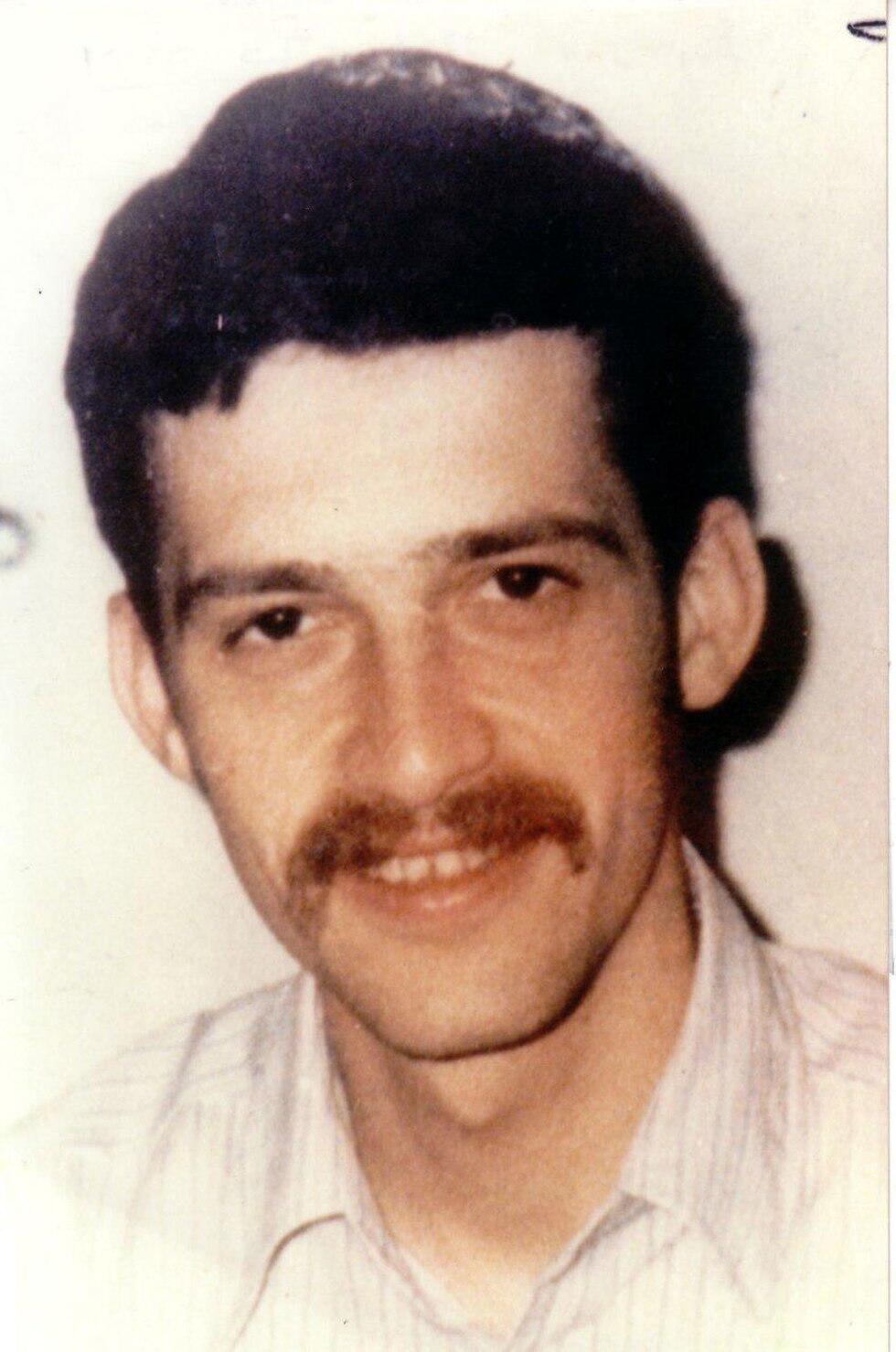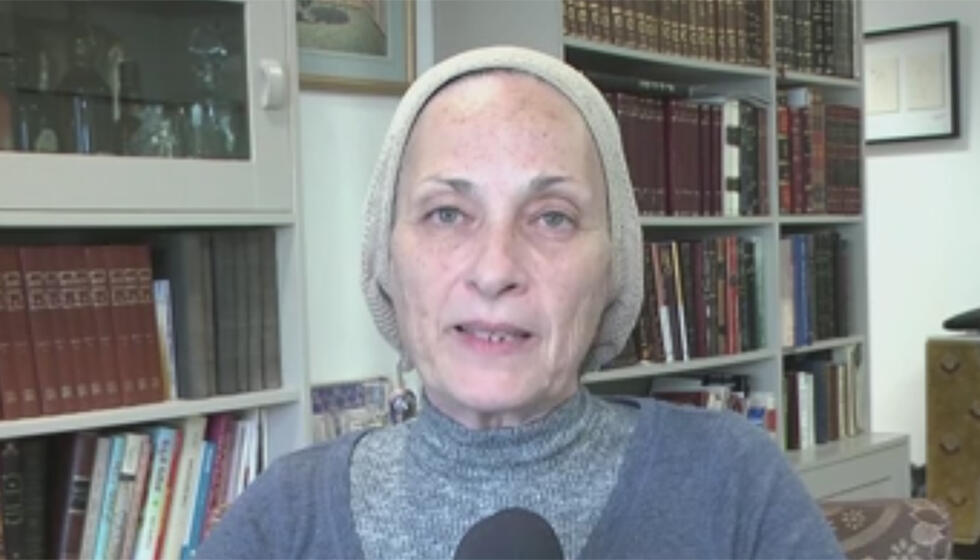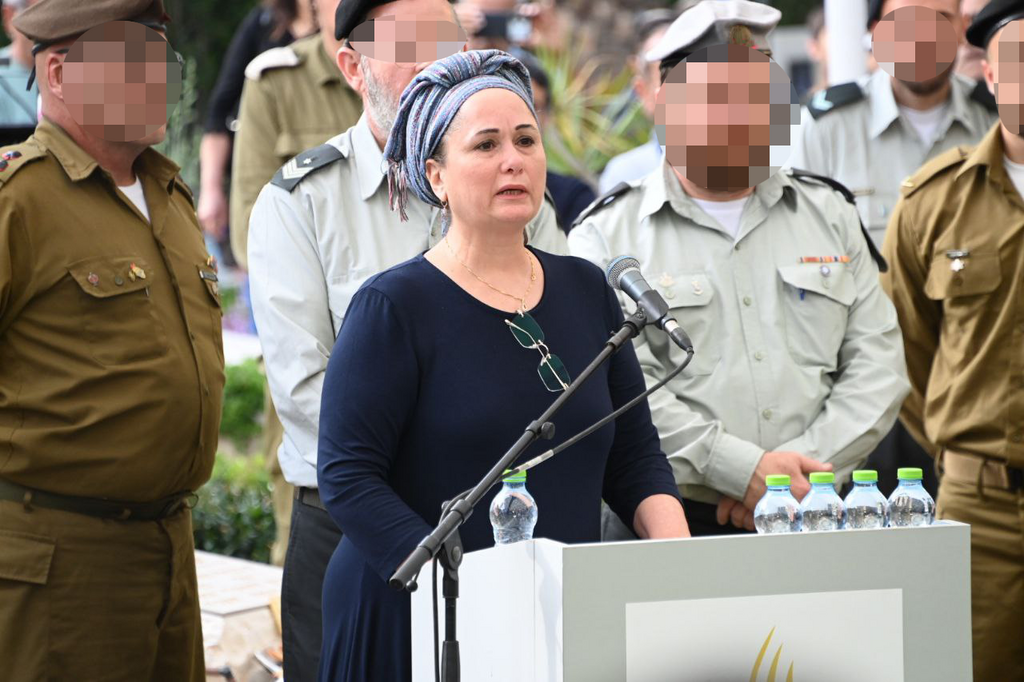With the return of Staff Sergeant Tzvi Feldman’s body in a special operation from the heart of Syria after 43 years, one soldier remains missing from the Battle of Sultan Yacoub—Staff Sergeant Yehuda Katz. Katz’s sister, Farhia Hayman, was interviewed on Tuesday morning in the Ynet studio and said she still holds onto hope that her brother might be found alive.
"I heard about Feldman’s recovery on Sunday morning, an hour before everyone else, before the information was released to the media," Hayman shared. "It caught me by surprise. I knew efforts were being made, but nothing concrete was happening. The last time, when Zachary Baumel was returned, I knew about it beforehand. For me, this is the bare minimum—to bring them back after 43 years. There were opportunities to do it earlier. We knew as early as a week after the war that there were soldiers’ bodies in the Yarmouk camp. But we don’t look back."
She added, "I still hold onto hope that Yehuda will be found alive because that option exists. Admittedly, it’s not given much of a chance, and I know I can't delude myself. But considering the fall of the regime in Syria, we’ve seen people emerge after decades from underground prisons and various detention facilities. So, this is a possible, existing option."
Hayman explained that she has reasons to cling to the hope that her brother is alive. "There are two or three positive pieces of information that indicate he was captured alive. Hezi Shai, who returned from captivity, didn’t know Yehuda, but he overheard his captors whispering in Arabic on the plane that brought him to Geneva. He knew Arabic from home because he came from an Iraqi family. He told me the words he overheard, and since I don’t speak Arabic, I went to the Arabic Studies Department at Tel Aviv University to ask what they meant.
"They told me it means 'captured alive.' The term in Arabic for finding a body is different. That’s one example, and it happened three years after the war. Additionally, there were reports of discussions in the corridors of the Foreign Ministry in Damascus saying, 'Katz needs to be removed from the list of missing persons.' In other words, someone knows something about him. This was in the first few years after the war."
Hayman provided more examples: "Syrian tank commanders buried bodies in the Jewish cemetery in Damascus three weeks after the war. They dragged the tank there, but where is Yehuda? If he was in the same situation as the others, and some were buried but he wasn’t, does that make sense to anyone? And this wasn’t some random group of terrorists—it was the organized Syrian army. Everything was systematic. Also, when we asked an Arab woman in a village near Sultan Yacoub, she said an Israeli soldier knocked on her door and asked for water. When Hezi Shai and Ariel Lieberman returned, they said it wasn’t them. So, there’s a big question here.
"Yehuda is missing, and the meaning of 'missing' is that we don’t know what happened to him. Over the years, additional messages have come in suggesting that Yehuda is alive. That’s something to hold onto. Why should we give up? Why should we volunteer to be a bereaved family when we don’t have conclusive proof? It’s possible that during the tank attack on Lebanese soil, he lost consciousness, exited the tank, and wandered off. Why should I lock onto the idea that he’s dead because someone finds it inconvenient to continue dealing with this? Why?"
She further explained that for about 20 years, the Israeli officials working with the family shared the same opinion. "Gil Regev, who was the head of the IDF’s Manpower Directorate and a former Air Force officer, wanted to focus exclusively on Ron Arad’s case. He made an arbitrary bureaucratic decision to declare all three missing soldiers as fallen soldiers whose burial places are unknown," she said. "We went to the Supreme Court and stopped it with an injunction because you don’t make such a decision without some new development or evidence. For 20 years, it was fine to leave them as missing; it could have continued that way. My mother, Sarah Katz, of blessed memory, once approached a Chief of Staff and said, 'I’m Sarah Katz, 92 lbs., a Holocaust survivor—I can handle the uncertainty. Why can’t the IDF? Why do you want to turn this question mark into an exclamation point?'
"Yehuda, in any spare moment, would study the Talmud and all its complexities, and he always said that if he encountered a difficult question, he preferred a good question over a weak answer. There’s a question here, and it’s a legitimate and valid question. Don’t dismiss it with some flimsy excuse pulled out of thin air. There’s no need for that. We can live with the question mark."
Get the Ynetnews app on your smartphone: Google Play: https://bit.ly/4eJ37pE | Apple App Store: https://bit.ly/3ZL7iNv
Farhia Hayman also drew a comparison between the issue of the missing soldiers from the First Lebanon War and the events of October 7. "We had a seven-year legal battle because my mother suffered a stroke from the sense of betrayal by the state. It was horrible. Then we filed a civil lawsuit to investigate all the officers, and we saw documents and forgeries. We saw things that were beyond shocking. I deeply regret that lessons weren’t learned from our case—they repeated the same mistakes on October 7. I wasn’t at all surprised because a system that operates on cover-ups and shirking responsibility can’t fix itself."
Despite everything, Hayman said she looks to the future. "Immediately after the news about Tzvi Feldman came out, my eldest brother and I met with the head of the Mossad and the entire team. We decided to start reviewing everything again. So, I’m ready to approach this with an open mind to search for the truth," she said. "Whatever the truth may be, we will deal with it. It’s the lies and the cover-ups that are hard to cope with. Let’s see if we can achieve a respectful, professional, and honest discussion. I, for my part, will do everything I can to make it happen. I’m coming in with an open mind, and I won’t deny the facts, but speculation has its place elsewhere.
"There’s a saying: 'All’s well that ends well,' but you can’t reach a good ending if the foundations are rotten. You can’t build a building on rotten foundations—it won’t hold. You need to fix it from the root. IDF used to be sacred, at least until the First Lebanon War—then, for the first time, it abandoned six soldiers in the field. The army fled for its life. And today, 43 years later, again, civilians and soldiers are being abandoned. Instead of understanding the magnitude of the failure and the need to fix it, they started a culture of cover-ups, which brought us to October 7. Even now, no state commission of inquiry has been established, just as one wasn’t back then. The refusal began there. The hubris and the flawed assumptions—they all started back then, as if they copied and pasted. We need to fix it from the root. And whoever wants to fix it, can fix it."




